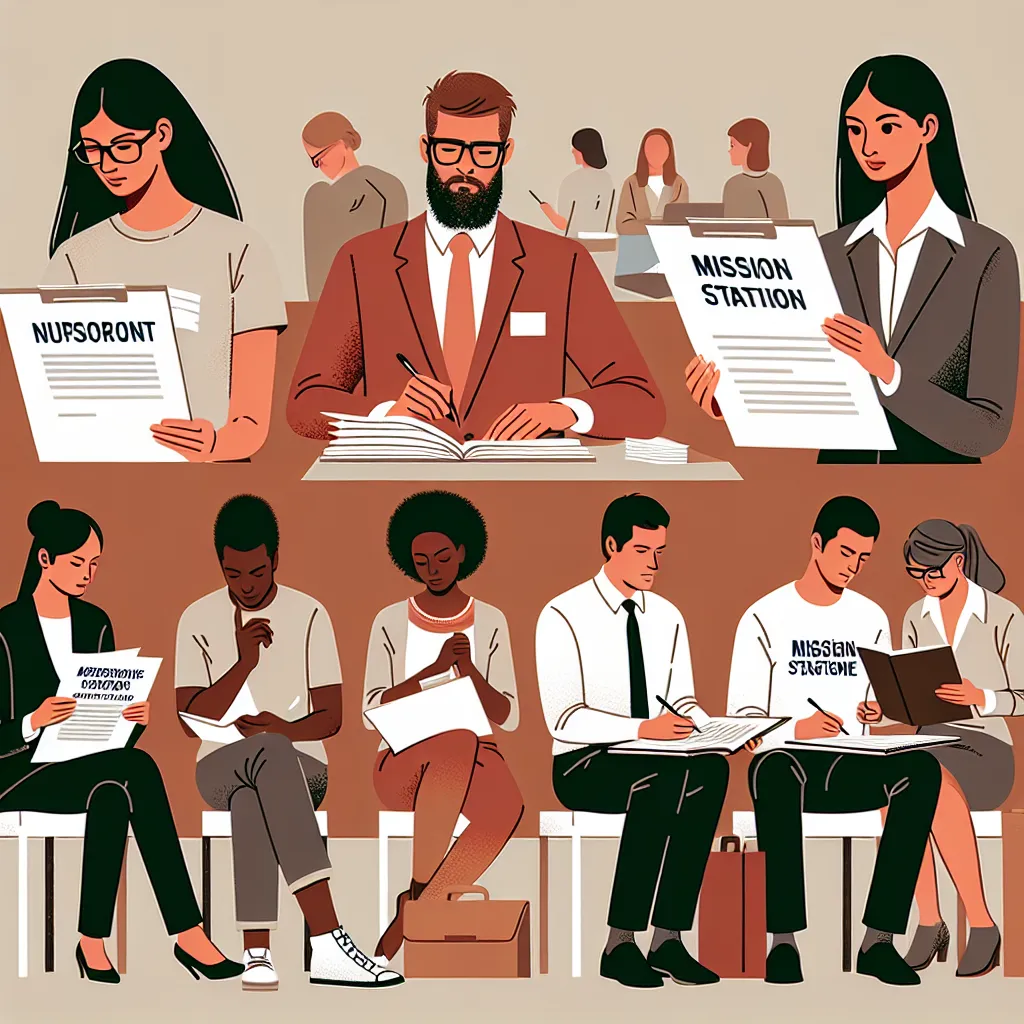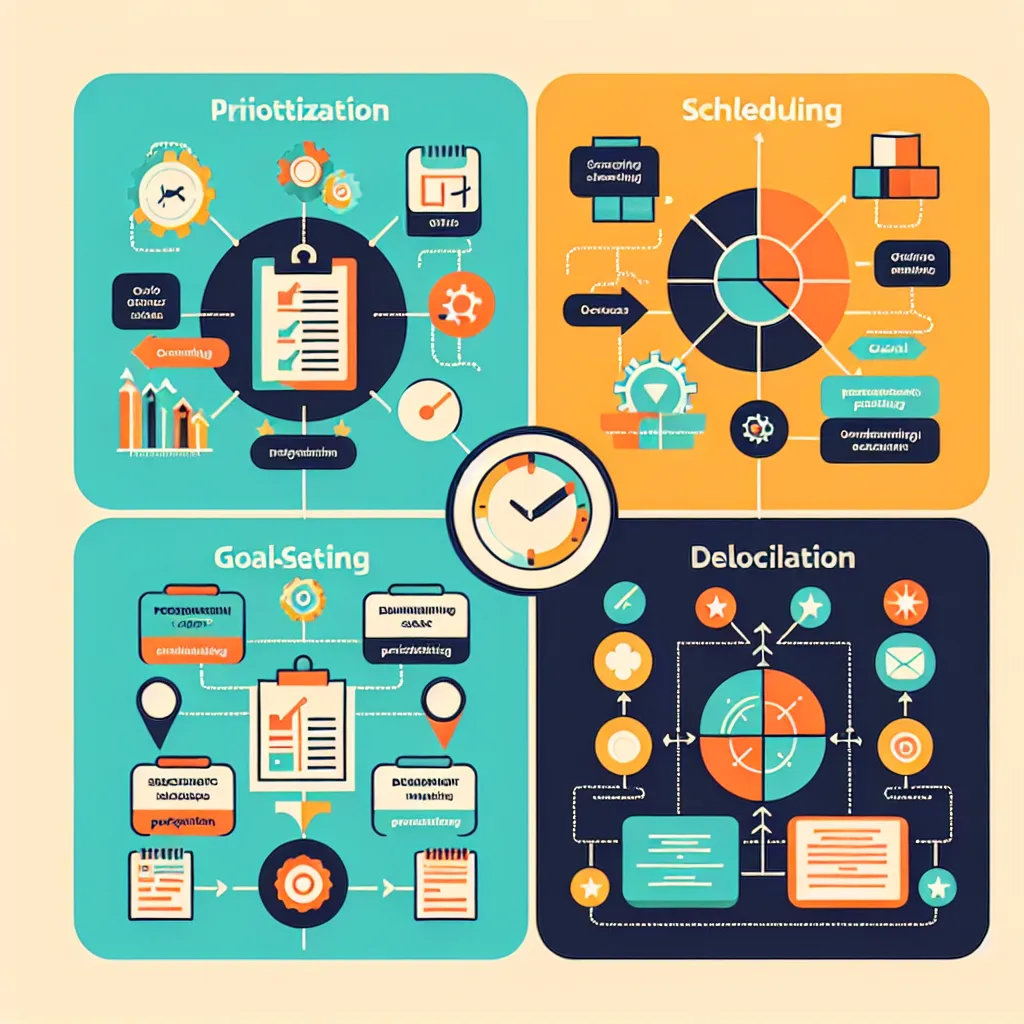Are you gearing up for a customer support interview? You’ve come to the right place! This comprehensive guide will walk you through everything you need to know to ace your interview and land that coveted customer support role. Whether you’re a seasoned professional or just starting your career in customer service, these tips and strategies will help you showcase your skills and stand out from the competition.
Understanding the Importance of Customer Support Interviews
Customer support is the backbone of any successful business. As a customer support representative, you’ll be the face and voice of the company, directly interacting with customers to resolve issues, answer questions, and ensure their satisfaction. That’s why companies take the interview process for these roles very seriously.
 Customer Support Interview Preparation
Customer Support Interview Preparation
What Employers Look for in Customer Support Candidates
When interviewing for a customer support position, employers typically assess candidates based on several key factors:
- Communication skills
- Problem-solving abilities
- Patience and empathy
- Technical knowledge
- Ability to work under pressure
- Cultural fit with the company
Understanding these criteria will help you tailor your responses and showcase your strengths effectively during the interview.
Common Customer Support Interview Questions and How to Answer Them
Being prepared for common interview questions is crucial. Here are some frequently asked questions in customer support interviews, along with tips on how to answer them:
1. “Tell me about a time when you dealt with a difficult customer.”
This question assesses your problem-solving skills and ability to handle challenging situations.
Answer strategy: Use the STAR method (Situation, Task, Action, Result) to structure your response. Describe the situation, explain your role, detail the actions you took to resolve the issue, and highlight the positive outcome.
Example answer: “In my previous role at XYZ Company, I encountered a customer who was extremely frustrated because their order hadn’t arrived on time for an important event. I listened attentively to their concerns, apologized sincerely for the inconvenience, and immediately looked into the status of their order. I discovered that there had been a shipping delay due to severe weather conditions. I explained the situation to the customer, offered them expedited shipping at no extra cost, and provided a discount on their next purchase as a goodwill gesture. The customer appreciated my efforts and ended up becoming a loyal, repeat customer.”
2. “How do you stay calm under pressure?”
This question evaluates your ability to maintain composure in stressful situations.
Answer strategy: Provide specific techniques you use to manage stress and give an example of how you’ve applied them in a work setting.
Example answer: “I believe staying calm under pressure is crucial in customer support. I have a few strategies that help me maintain my composure. First, I practice deep breathing exercises, which help me center myself when things get hectic. I also prioritize tasks and focus on addressing one issue at a time, which prevents me from feeling overwhelmed. For instance, during a product launch at my previous job, we experienced a sudden influx of customer inquiries. By taking a moment to breathe and methodically working through each query, I was able to provide accurate and helpful responses without getting flustered.”
3. “How would you handle a situation where you don’t know the answer to a customer’s question?”
This question tests your problem-solving skills and honesty.
Answer strategy: Emphasize your commitment to finding the correct information and your willingness to seek help when needed.
Example answer: “If I encountered a situation where I didn’t know the answer to a customer’s question, I would be honest with them. I’d explain that I want to ensure they receive accurate information and ask if I could put them on a brief hold while I consult with a colleague or check our knowledge base. If the issue requires more in-depth research, I would offer to escalate the query to a specialist and provide the customer with a timeframe for when they can expect a response. Throughout the process, I’d keep the customer informed and thank them for their patience.”
4. “Describe your ideal work environment.”
This question helps the interviewer assess your cultural fit with the company.
Answer strategy: Research the company culture beforehand and align your answer with their values while being honest about your preferences.
Example answer: “My ideal work environment is one that fosters collaboration and continuous learning. I thrive in a setting where team members support each other and share knowledge. I also appreciate a company that values work-life balance and provides opportunities for professional growth. From what I’ve learned about your company, it seems that you prioritize these aspects, which is one of the reasons I’m excited about this opportunity.”
5. “How do you handle multiple tasks and prioritize your workload?”
This question evaluates your organizational and time management skills.
Answer strategy: Explain your method for prioritizing tasks and provide an example of how you’ve successfully managed multiple responsibilities.
Example answer: “I use a combination of digital tools and time-blocking techniques to manage my workload effectively. I start each day by reviewing my tasks and categorizing them based on urgency and importance. I use a task management app to keep track of deadlines and set reminders. For instance, in my previous role, I was responsible for handling customer inquiries via phone, email, and chat simultaneously. I prioritized real-time communications like phone and chat during peak hours while allocating specific time slots for responding to emails. This approach allowed me to maintain a high level of responsiveness across all channels without compromising the quality of my work.”
Tips for Handling Unexpected Questions
Even with thorough preparation, you may encounter questions you didn’t anticipate. Here are some strategies to help you navigate these situations:
- Take a moment to gather your thoughts before responding
- Ask for clarification if you’re unsure about the question
- Draw from relevant experiences or skills if you don’t have a direct example
- Be honest if you don’t know something, but express your willingness to learn
- Use the opportunity to highlight your problem-solving skills and adaptability
Common Mistakes to Avoid in Customer Support Interviews
To increase your chances of success, steer clear of these common pitfalls:
- Lack of research about the company and its products/services
- Failing to provide specific examples to support your claims
- Speaking negatively about previous employers or colleagues
- Overlooking the importance of soft skills in customer support roles
- Not asking thoughtful questions about the role or company at the end of the interview
Follow-up Questions and Suggested Responses
Be prepared for these potential follow-up questions:
-
“How do you stay updated on our products and services?”
Suggested response: “I make it a habit to regularly review the company’s website, blog posts, and product documentation. I also follow industry news and participate in relevant online forums to stay informed about the latest trends and customer needs.” -
“Can you give an example of how you’ve gone above and beyond for a customer?”
Suggested response: “At my previous job, a customer was struggling to set up our software on a tight deadline. I stayed after hours to walk them through the process step-by-step, ensuring they were comfortable with the system before signing off. The customer was extremely grateful and later became one of our biggest advocates.” -
“How do you handle constructive criticism?”
Suggested response: “I view constructive criticism as an opportunity for growth. I listen attentively, ask for specific examples, and work on implementing the feedback to improve my performance. I believe that being open to feedback is essential for personal and professional development.” -
“What do you think are the most important qualities for success in customer support?”
Suggested response: “I believe the most crucial qualities are excellent communication skills, empathy, patience, problem-solving abilities, and a genuine desire to help others. Additionally, being adaptable and having a positive attitude are essential for thriving in the ever-changing landscape of customer support.” -
“How would you handle a situation where a customer is asking for something that goes against company policy?”
Suggested response: “In such cases, I would first empathize with the customer’s request and explain the reason behind the policy in a clear and friendly manner. Then, I’d explore alternative solutions that align with company guidelines while still addressing the customer’s needs. If necessary, I would escalate the issue to a supervisor for further guidance.”
Conclusion
Preparing for a customer support interview requires a combination of self-reflection, research, and practice. By familiarizing yourself with common questions, developing strong examples of your experiences, and showcasing your communication and problem-solving skills, you’ll be well-equipped to make a great impression on your interviewers.
Remember, the key to success lies in demonstrating your genuine passion for helping customers and your ability to represent the company in a positive light. With the strategies and insights provided in this guide, you’re now ready to tackle your customer support interview with confidence.
We’d love to hear about your experiences and any additional tips you might have for acing customer support interviews. Share your thoughts in the comments below!
For more interview preparation tips, check out our related articles on how to talk about your experience in customer service and how to discuss your leadership skills in an interview.




